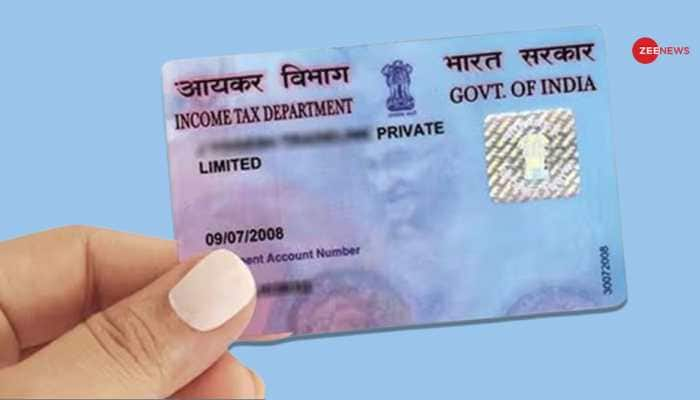How To Save Money Without Changing Your Lifestyle
In this blog post, we'll share simple tips that can help you cut down on spending while still doing the things you enjoy.
Trending Photos
)
Saving money doesn't have to mean going without the things you love. In fact, it's possible to save big without having to significantly change your lifestyle — all it takes is a bit of forethought and creativity.
In this blog post, we'll share simple tips that can help you cut down on spending while still doing the things you enjoy. With a few small changes here and there, saving money becomes much simpler than you might think! So read on if you're looking for ways to save without making huge sacrifices in your life.
Ways To Save Money
Here are a few tips for people who are looking for simple yet efficient ways to start saving without going through a radical life transformation. With these tactics, you can begin getting the most out of your budget while still living your desired lifestyle.
1. Money Date, Please?
Firstly, making a weekly "money date" can be an effective way to stay on top of your finances and make sure you're reaching your financial goals. Developing a habit of sitting down with your money once a week can help you track your progress and ensure that you are staying on track when it comes to budgeting and smart spending.
Quick Tips:
- Start by taking stock of all your current financial accounts.
- Review how much is coming in each month from various sources like salary or investments.
- Then look at expenses - both fixed (like rent) and variable (like dining out). Calculate how much money is left over each month after all necessary payments are made from income sources.
- Once you have an understanding of where the money is going each month, create a budget that allows for reasonable spending while still contributing towards savings.
2. The Vital ‘48’
One of the easiest and smartest ways to save money each day is to wait 48 hours before making a purchase. This will help you create a system of buffering your impulse purchases, which can have a huge impact on the amount of money you save. It's also important to remember that with so many options available online, shopping around for the best price is essential in helping to save money.
Quick Tips:
- Compare different prices from different retailers or look for discounts or coupons that may be available.
- Read reviews from other customers and make sure that whatever you're buying meets your needs so there won't be any regrets later on.
- You'll also want to consider how long the product will last and if it's an investment worth making financially in the long run.
3. Shop During Festival Sales
During festival season in many countries, stores are offering discounts and promotions on a wide range of merchandise. This presents an excellent opportunity for someone who wants to save some money and still get quality items. For example, many times people can find products with discounts of up to 80% using coupons online, making them significantly cheaper than normal prices.
Quick Tips:
- Some festivals come with buy-one-get-one-free offers which can help reduce costs even further.
- Customers can benefit from exclusive offers that often become available only during festival sales since companies try to attract buyers by offering better deals than usual.
- Use online promotional codes or coupons that usually provide extra discounts on select items.
4. Invest In The Share Market
Investing in the stock market offers many advantages, such as potentially significant returns, diversification of your portfolio, and the ability to purchase shares from some of the leading companies. With the help of online brokers and financial advisors, it is now easier than ever before to start investing in stocks.
Quick Tips:
- When deciding to invest in the Indian stock market, it’s important to think long-term and focus on creating a strong portfolio that meets your individual needs.
- Researching stocks and understanding the nuances of investing are both essential steps that should be taken before beginning an investment journey.
- Investors should consider building a diverse portfolio with multiple stocks across sectors.
- It’s essential to have an emergency fund available in case you need cash quickly or if market conditions change unexpectedly.
5. Refer Your Friends To New Apps…
Saving money doesn't have to be a challenging task. The best way to save is by referring friends and family to new apps and websites that offer referral discounts. By doing so, you'll be able to enjoy some great savings on things like online purchases, subscription plans, and even travel bookings.
Quick Tips:
- When it comes to referring others, it's important not only to provide them with more information about how they can benefit from the service but also, tell them exactly what types of rewards they'll receive once they sign up.
- This could include free gifts, exclusive discounts and vouchers, cashback bonuses or other benefits.
- It's also useful to include some facts and figures in your description so that those considering joining will trust the service more easily.
6. Buy with No Cost EMI
There are several easy ways to save money every day without having to resort to drastic measures. One way is to buy items with no cost EMI (Extended Manufacturer's Warranty). This means that the manufacturer provides a warranty on the product even if you do not purchase the product from a brick-and-mortar store. This can be a useful option for items that may not be subject to normal warranty conditions, such as electronic equipment or furniture. By purchasing a product with no cost EMI, you are also reducing your overall cost of purchasing the item.
Quick Tips:
- Check with your bank or credit union to see if they offer any no-cost or low-cost EMI products.
- Shop around and compare rates to find the best deal on an EMI product that meets your needs.
- Always be aware of the terms and conditions of any EMI product you are considering, as some banks and credit unions may have stricter eligibility requirements than others.
7. Quality Vs Quantity…
More often than not, it is much wiser to invest in higher quality products that will last longer, rather than purchasing items that are cheaper but won't last for very long. When you choose the higher quality product in the beginning, you may have to pay more upfront, but it will typically be a better deal in the long run because you won't have to replace it as often as when you buy a cheaper item of lesser quality. This rule can be applied to almost any purchase, from food and drinks to clothes and electronics.
Quick Tips:
- When purchasing clothing, opt for items made from higher quality materials like cotton or wool instead of cheaper synthetic fabrics that may not last as long.
- Electronics should also be selected carefully with an eye to durability and reliability rather than simply opting for the lowest price tag.
- Doing your research ahead of time and choosing items with better construction, quality components, and longer warranties will help you save money by avoiding costly repairs or replacements down the line.
8. Did Anyone Say Emotions?
Yes, we did. Rather than using spending as a coping mechanism for difficult emotions, try to identify what you are feeling and find healthier ways to cope. Writing can be an excellent tool for understanding and expressing your emotions in a healthy way. Before making any major purchases, take some time to reflect on why you are spending money and make sure it is truly necessary.
Quick Tips:
- Tracking your expenses can help prevent overspending.
- Make it a habit to keep a detailed record of all the money you spend each day.
- Analyze this data periodically so that you can identify any areas where you may be overspending and make adjustments accordingly.
- Create a budget for yourself based on your own income and projected expenses and stick to it as much as possible.
Celebrities, & You?
It can be extremely difficult not to compare your financial life to those of people who have more money than you, especially when it comes to the lifestyles that some of these celebrities lead. But in order to make sure that you are staying on track toward achieving your financial goals, it is important for you to focus on what matters most to you, and create a financial plan that supports that vision. This will help you stay away from spending money on items or activities which don't align with your goals simply because they are popular or trendy.
Quick Tips:
- The best way to ensure that you don't get caught up in the trap of keeping up with people who have much more resources than you do is by reminding yourself constantly why having financially secure future matters.
- Outline all of the long-term benefits that saving money can provide - such as reduced stress, improved quality of life, and increased peace of mind - and focus on these instead.
- You should also take some time to research different techniques and strategies around budgeting and saving money.
Team Work Matters
If you are married or live with a partner, communication, and teamwork are critical when it comes to managing your household finances. To successfully save money, it is essential to make sure that both of you are in agreement about your goals for saving, the plans that have been made to meet those goals, and the resources available to help reach them. Having a cohesive plan for savings is only effective if everybody involved is willing to commit their time, energy, and money toward achieving the desired results.
Quick Tips:
- It is important to be realistic about the financial situation so that expectations are reasonable and attainable.
- Create a shared account where all income will be deposited and expenses will be paid out of.
- Setting limits on spending as well as developing a system for tracking expenses can also help keep costs lower than anticipated.
- There are also plenty of free online tools designed specifically for budgeting which can aid in finding areas where costs can be cut back or reduced.
Think Of The Children
It is incredibly important to instill the value of saving money in your children and provide them with a strong foundation early on. The lessons they learn from their parents form the basis for their relationship with money throughout life. In order to facilitate teaching children about how to save and spend money wisely, parents can use helpful tools such as jars or envelopes for the kids to store their allowance or earnings.
Quick Tips:
- Show your children that you prioritize savings, by budgeting and making smart decisions when it comes to spending. Explain why you’re putting aside part of your income each month.
- Teach your child that not all wants need to be satisfied right away, and explain how delayed gratification can mean big rewards later on.
- Help teach your children the difference between ‘needs vs wants’, so they better understand how spending works and can make smarter decisions with their own money over time.
Map Your Financial Goals
Mapping out your financial goals is essential if you want to save money every day. It's not enough to simply say "I want to save for a home down payment"; you need to be specific about how much money you need when you need it by, and how much you'll need to save each month in order to reach that goal. For example, instead of saying “I want to save for a car in 3 years”, try something like “I will save Rs 10,000 per month over the next 36 months so I can buy a new car”.
Quick Tips:
- You can expand on your financial goal by making sure its parameters are realistic – make sure that the amount of money you need to save isn't too small or too large for the timeline you've set yourself.
- Break your goal down into smaller chunks when setting up a budget; this will allow you to measure progress better and also help keep track of what money is going where.
- It's also important not to forget about building an emergency fund alongside these savings goals; having an emergency fund gives you financial security in case anything unexpected comes up.
Are You Fin-lit?
Financial literacy is an important skill that many people in India lack, but it can make a huge difference in your financial future. Knowing the basics of finance, budgeting, and recording your income and expenses are essential steps in understanding how much money you have coming in and out, as well as being able to identify any opportunities for savings. It's also a great way to keep track of your goals and make sure you're staying on track with them.
Quick Tips:
- Research online, take classes, or read books about personal finance that can help you gain the knowledge and skills you need to become more financially savvy.
- You should create a budget that breaks down all expenses into categories such as food, bills, and entertainment so that you can see where your money is going each month.
- Track your income sources such as wages from work or investments so that you can plan for taxes or other expenses accordingly.
It’s never too late my friend…
It’s never too late to start saving, but the sooner you start, the better off you’ll be. If you follow the above-mentioned tips in this blog post, you can save money without changing your lifestyle. You don’t have to give up everything you enjoy to save money – just make small changes in your spending habits and be mindful of where your money is going. What are some other ways you save money? Share your tips in the comments below.
(Above mentioned article is a Consumer connect initiative, This article is a paid publication and does not have journalistic/editorial involvement of IDPL, and IDPL claims no responsibility whatsoever.)
Stay informed on all the latest news, real-time breaking news updates, and follow all the important headlines in india news and world News on Zee News.
Live Tv







)
)
)
)
)
)
)
)
)
)
